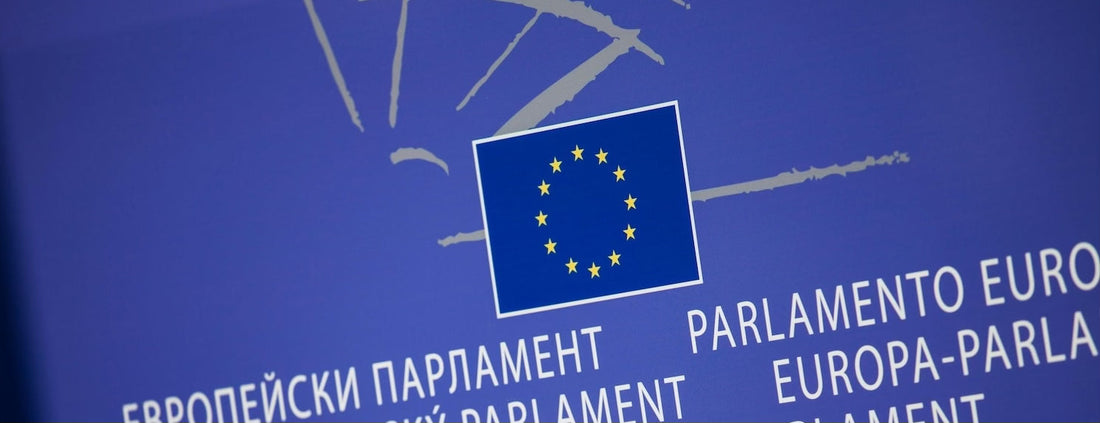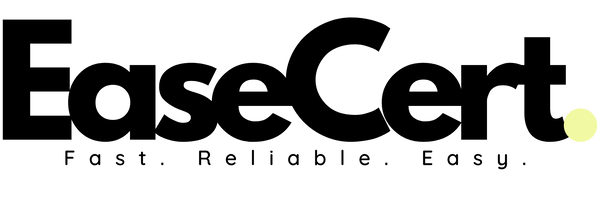
GPSR Compliance 2025: EU General Product Safety Regulation Requirements for Businesses
The General Product Safety Regulation (GPSR, Regulation (EU) 2023/988) is one of the most significant changes to EU product compliance in decades. It replaces the General Product Safety Directive (GPSD) and came into force on 13 December 2024 after an 18-month transition period. The GPSR sets minimum safety obligations for all consumer products made available on the EU market, regardless of whether they are sold in a physical store or online. Its objective is to close safety gaps, modernise enforcement, and protect consumers from unsafe goods, including risks linked to digital technologies, software, and online sales channels.
Why the GPSR Matters
Unsafe products in the EU cost consumers and society billions of euros annually. The GPSR aims to reduce this by strengthening compliance and making recalls more effective.
- Equal safety standards for products sold online and offline
- Application of the precautionary principle to uncertain risks
- Stronger recall effectiveness with mandatory remedies (how to handle a recall)
- Alignment with the Market Surveillance Regulation
- A level playing field for EU and non-EU businesses
Scope: Which Products Are Covered?
Products Covered
- New and second-hand products offered by traders
- Refurbished and reconditioned items
- Standalone software used by consumers
- Free products, giveaways, promotional items (EU compliance guide)
Products Excluded
- Antiques
- Products clearly marked as “to be repaired or reconditioned”
- Products fully regulated under EU harmonisation law (GPSR still applies to risks not covered there)
Who Must Comply?
All actors in the supply chain are covered:
- Manufacturers
- Importers
- Distributors and traders
- Authorised representatives
- Fulfilment service providers
- Online marketplaces
One company can hold multiple roles. For example, a marketplace that sells its own branded products is both an intermediary and an economic operator. Learn more about the EU Responsible Person role.
Business Obligations: Prevention and Correction
Prevention Obligations
- Safety by design: products must be developed with consumer safety as a priority.
- Risk assessment and technical documentation: every product must have technical documentation, retained for 10 years (GPSR technical file guide).
- Labelling and traceability: identifiers, manufacturer/importer details, and an EU contact must be displayed. Digital-only labels are not sufficient (labelling rules explained).
- Responsible person in the EU: required for all products sold in the EU (appoint an EU Responsible Person).
-
Complaint handling: consumers must be able to report issues; businesses must keep complaint records for 5 years.
Correction Obligations
- Accident reporting: serious incidents must be reported through the Safety Business Gateway.
- Corrective actions: recalls, withdrawals, and warnings must be executed without delay.
- Consumer notification: direct consumer communication and public recall notices are mandatory (new recall rules).
- Remedies: at least two remedies must be offered (refund, repair, replacement).
-
Cooperation with authorities: supply chain details must be shared on request.
Online Marketplaces: Stricter Obligations
For the first time, the GPSR introduces a dedicated chapter for online marketplace providers (OMPs), linked to the Digital Services Act. See also our guide on Amazon EU sales and GPSR compliance.
Key Duties for Marketplaces
- Register in the Safety Gate Portal and designate a single contact point for authorities and consumers (EU Safety Gate registration).
- Maintain internal processes for product safety and ensure traders provide accurate product information.
- Respond within two working days to orders from authorities to remove unsafe listings.
- Process safety notices within three working days.
- Ensure compliance by design: listings must display mandatory details and safety warnings.
- Perform random checks against Safety Gate alerts.
- Suspend repeat offenders from using the platform.
- Cooperate on recalls, share data, and allow scraping for safety monitoring.
The Responsible Person in the EU
All products sold in the EU must have a responsible person established in the Union. If the manufacturer is outside the EU, the cascade applies:
- Manufacturer in the EU = responsible person
- If not, the importer
- If neither, an authorised representative
- If none, the fulfilment service provider
To understand the full implications, read our article on why you need a GPSR Responsible Person.
Main Tasks
- Verify technical documentation and ensure it is available to authorities.
- Ensure correct labelling and consumer instructions.
- Notify accidents via the Safety Business Gateway.
- Cooperate with authorities in recalls and investigations.
Labelling Requirements
Mandatory information must appear both physically and online:
- Product identifiers (type, batch, serial number, barcode).
- Manufacturer’s name, postal address, and electronic address.
- Importer or responsible person details if applicable.
- Safety instructions and warnings in the language of the country of sale.
Digital-only labels (QR codes) are not accepted; physical labelling remains mandatory. Learn more in our GPSR warning examples guide.
Recalls: Stronger Consumer Protection
- Consumers must be informed directly where possible.
- Recall information must be widely published, including on online marketplaces.
- Recall notices must follow a standard EU template.
- At least two remedies must be offered: refund, repair, or replacement.
- Clear recall instructions must encourage consumer action.
Key Takeaways for Businesses
- GPSR applies to all consumer products, including software.
- Every product requires technical documentation and risk assessment (GPSR risk analysis explained).
- Physical labelling is compulsory.
- A responsible person in the EU is mandatory for all products.
- Online marketplaces face strict compliance obligations.
- Recalls must be fast, effective, and consumer-friendly.
Frequently Asked Questions
Does the GPSR apply to all businesses, regardless of size?
Yes. The GPSR obligations apply to all businesses, from microenterprises to global corporations. Consumers are entitled to safe products, and no exemptions are made based on company size. However, some lighter obligations apply to micro and small online platforms under the Digital Services Act.
What types of products fall under the GPSR?
The GPSR applies to all consumer products, including new, used, refurbished, and even free products. Standalone software is also covered when it can be used by consumers. Antiques and goods marked “to be repaired or reconditioned” are excluded. See our technical file and compliance guide.
Is digital-only labelling (QR codes) allowed?
No. Physical labelling is mandatory. Information such as product identifiers, manufacturer details, and responsible person contact information must appear on the product or packaging. Digital labels can complement but not replace physical labelling. Learn more in our labelling requirements article.
What is a “responsible person” under the GPSR?
A responsible person is an economic operator established in the EU who ensures the product complies with GPSR requirements. If the manufacturer is outside the EU, the importer, authorised representative, or fulfilment service provider becomes the responsible person (how to appoint one).
What are the obligations for online marketplaces?
Online marketplaces must register with the Safety Gate Portal, designate contact points for authorities and consumers, ensure that listings show mandatory product information, remove unsafe products within two working days, process safety notices within three days, and suspend repeat offenders. Read more in our marketplace compliance guide.
How must businesses handle recalls under the GPSR?
Recalls must be effective and consumer-friendly. Businesses must directly notify affected consumers where possible, publish recall notices, and provide at least two remedies such as repair, replacement, or refund. A standard EU recall notice template must be used. For practical steps, see our recall guide.
Does the GPSR cover second-hand products?
Yes. Second-hand products sold by traders must meet GPSR obligations. Products already placed on the EU market before December 2024 can continue to circulate under previous rules, but products first sold after that date must fully comply with GPSR requirements.
Do B2B products fall under the GPSR?
No, if a product is exclusively intended for professional use and not reasonably likely to be used by consumers. However, if a product may also be used by consumers under foreseeable conditions, it falls under the GPSR.
How should accidents be reported?
Accidents resulting in death or serious injury must be reported through the Safety Business Gateway. Manufacturers, importers, or responsible persons are obliged to notify authorities without delay.
